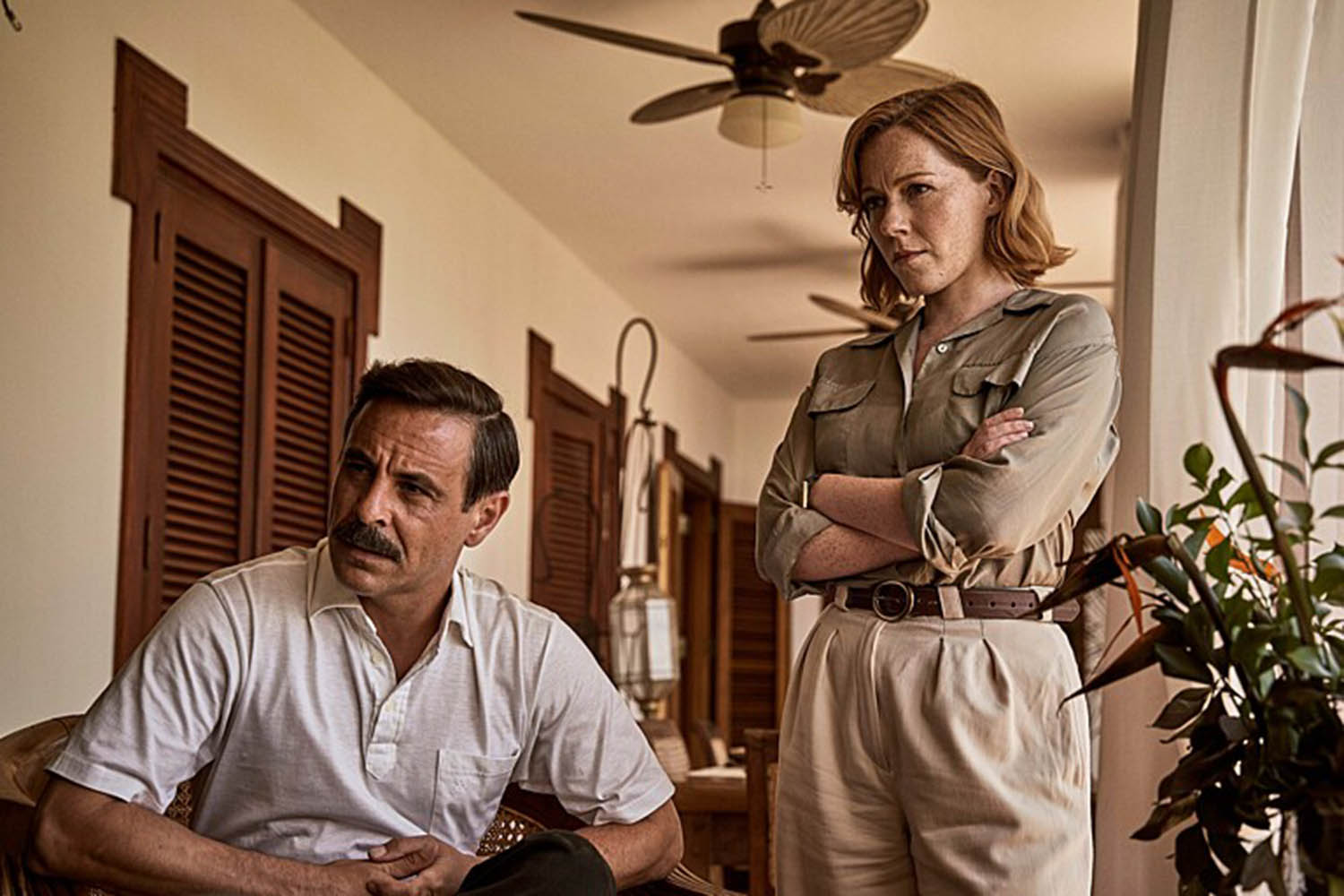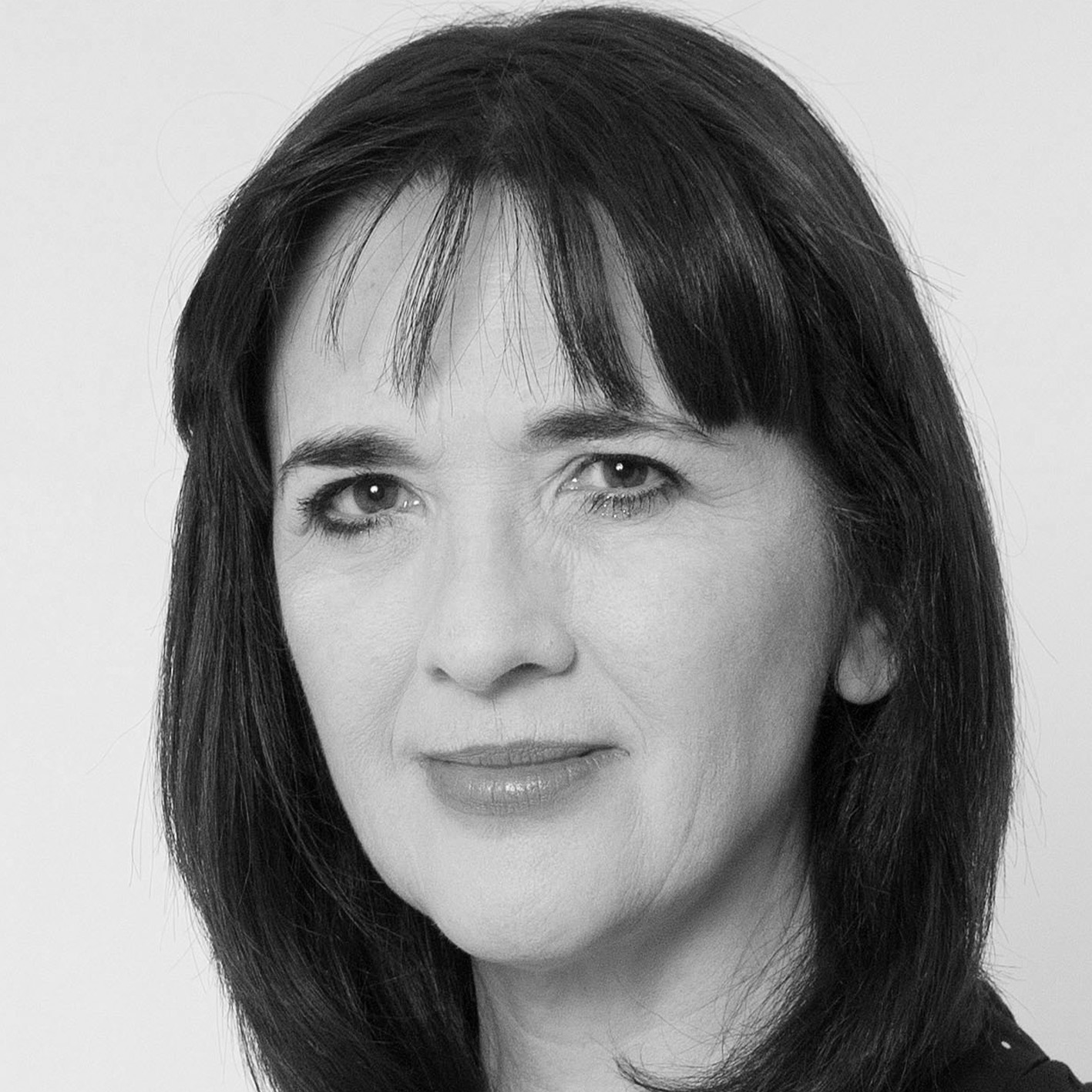For those of us not overly fond of the heist genre, the first series of Neil Forsyth’s The Gold, in 2023, came as a cracking surprise. Inspired by the true story of the theft of £26m of gold from the Brink’s-Mat depot in Heathrow in 1983, it was thrilling and intricate, chaotic and human – a scrappy, stumbling battle between south London criminals who’d taken on rather more than they could handle and detectives determined to stop them getting away with it.
It ended with loose ends cascading like a bleak 1980s ticker-tape parade, and the police, led by the tenacious old-school DCI Boyce (Hugh Bonneville), realising they’d only been following half the stolen gold. Sprawling through the 1990s (cue the Stone Roses and Faithless), the second and final series follows the other half of the money on an international trail that takes in the Canary Islands, the Caribbean and the Isle of Man, and it’s just as remarkable and off-kilter a watch.
In a six-part telling, with some characters real and others composites, Tom Cullen returns as John Palmer, now running a timeshare racket in Tenerife and unable to resist the urge to brag about his wealth on the Sunday Times rich list. Boyce is trying to keep the Brink’s-Mat investigation open (“I don’t know how this ends, but I know where it’s begun”), aided again by officers played by Emun Elliott and Charlotte Spencer, and a new spivvy detective (Stephen Campbell Moore).
Meanwhile, Sam Spruell’s hangdog criminal Charlie (“I became a villain so that one day I wouldn’t have to be a villain any more”) tries to turn his gold into cash. He becomes enmeshed with Douglas, a supercilious, bristling public school archetype (a savage and brilliant turn from Joshua McGuire) with laundering connections overseas.
One question mark over the first series was whether it sanitised the criminals a little too much: in real life, one of the gang, Kenneth Noye (played in the drama by Jack Lowden), fatally stabbed Brink’s-Mat officer DC John Fordham – he successfully pleaded self-defence – and was later convicted of the 1996 road-rage murder of Stephen Cameron. Noye (spoiler alert) appears later in this series, on the run from that murder, but there’s no question of him being softened or legitimised. Noye’s encounter with Palmer (“I thought it might be fun to spend time with an old mate”) is dry-mouthed with menace.
Another issue the first series had was sudden eruptions of state-of-the-nation speechifying. It’s present again (“We are a union of ruined souls”), though thankfully not as often. Based as it is on real life, the drama ends somewhat sloppily (for one thing, the gold was never found). But then The Gold has never really been about shiny ingots, nor about what Boyce gruffly terms “the dirty, dangerous money”. Set against a backdrop of passing decades and sweeping societal shifts, it circles around one huge event touching and tainting a series of different lives, rolling on and on through the years, never letting up. In many ways, The Gold is the study of a curse.

‘Rousing’: Jamie Oliver takes the education secretary to task in Jamie’s Dyslexia Revolution
On Channel 4, Jamie Oliver is in rousing campaigning mode again, with his one-off documentary Jamie’s Dyslexia Revolution. Oliver is as well known for his school dinners crusade as he is for his perfect roast chicken and classic spaghetti carbonara. Who could forget him waging bloody war on Turkey Twizzlers and the government, urging better nutrition for pupils, sparking a national campaign? That was spearheaded by Oliver’s 2005 docuseries, Jamie’s School Dinners. Two decades later, his new campaigning documentary is about children (dyslexic and neurodiverse in other ways) forced to struggle through an education system that isn’t designed for them.
Oliver has spoken out before about his personal experiences with dyslexia. “I’m the second biggest author in the country, it’s bonkers,” he says now. “I read my first book at 33, something like that.” At school he felt stupid; learning to be creative with food saved him. The documentary first shows him being celebrity-issue Jamie Oliver, inspiring a crowd of dyslexic activists. Then we see the private Jamie, reading text aloud for a work recording, stumbling over words, frustrated, embarrassed, apologising.
We see the private Jamie, reading text aloud for a work recording, stumbling over words, frustrated, embarrassed
We see the private Jamie, reading text aloud for a work recording, stumbling over words, frustrated, embarrassed
Footage includes Oliver speaking at a House of Commons event, and showcases other people’s experiences with dyslexia (among them Holly Willoughby). Visiting schools, hearing devastating statistics (he’s told that as many as 50% of people in prisons could be dyslexic), Oliver wants better special educational needs funding and training for teachers and early statutory screening for children – quoting figures that suggest that up to a quarter of children could be struggling with dyslexia and other neurodiverse issues.
Perhaps inevitably, Oliver seems rather less bubbly, more battle-scarred, than he did during the school dinners campaign. “I’ve done campaigns in the past,” he says. “They’re always tricky, they’re always hard, and you’re always going to upset people as well as inspire.” Still, his experience proves valuable when he secures a meeting with education secretary Bridget Phillipson (as if she would refuse!), calmly disputing her assertion that there is already adequate screening and asking if there could be a timeline for change. Is it just me or does the perma-polite, smiling Phillipson handle the TV chef with extra-long cooking tongs?
Newsletters
Choose the newsletters you want to receive
View more
For information about how The Observer protects your data, read our Privacy Policy
Also on Channel 4, there’s Uzo Oleh’s quirky mini-thriller Beth, the first digital original drama to also be screened in three separate 15-minute episodes on YouTube. A mixed-race couple (Nicholas Pinnock and Abbey Lee) are desperate to conceive a child, but the child is born white like the mother.
It’s all rather chilly and intense, but I enjoy the splash of sci-fi and the slightly ludicrous twist. If it’s akin to a Black Mirror episode, or something from the classic Tales of the Unexpected, it’s not executed badly. Factor in the fact that it’s filmed like bargain-bin Rosemary’s Baby-era Polanski, and you’ve got to admire the ambition.
Barbara Ellen’s Watch List
I, Addict (Disney+)
Stark and compelling Spanish drama about a writer and film-maker who enters rehab in a last-ditch attempt to recover from cocaine and alcohol abuse.
My Week With…. Guerrilla Girls (Sky Arts)
In this lively, thought-provoking episode of Kate Bryan’s arts series, the presenter hangs out with fabled American art activists Guerrilla Girls (below), who made their name exposing sexual and racial discrimination.
Surviving Syria’s Prisons (BBC Two)
A stark and raw documentary about former Syrian president Bashar al-Assad’s prisons, in which execution, sexual assault and torture were rife.
Photographs by BBC/Tannadice Pictures/Jamie Oliver Productions

